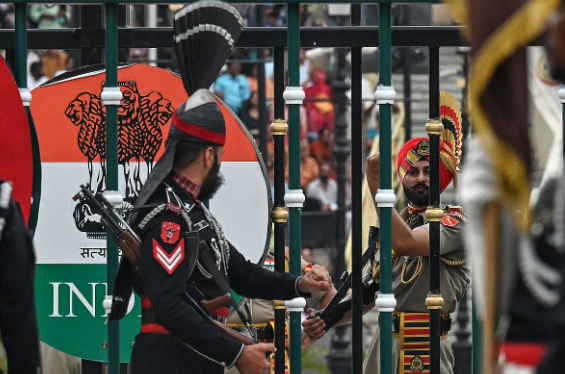India and Pakistan have agreed to withdraw additional troops deployed during their recent conflict in Kashmir and return to peacetime positions by the end of May, a senior Pakistani security official confirmed on Tuesday.
The agreement comes in the wake of a four-day military confrontation earlier this month that left more than 70 people dead. The hostilities were triggered by a deadly attack on tourists in Indian-administered Kashmir on May 7, which New Delhi blamed on Islamabad-backed militants — an accusation Pakistan firmly denies.
The brief but intense conflict saw a range of military exchanges along the Line of Control (LoC), including drone strikes, missile launches, aerial dogfights, and artillery fire. The violence came to a halt after U.S. President Donald Trump brokered a surprise ceasefire, which has held since.
“Troops will be withdrawn to pre-conflict positions by the end of May,” the Pakistani official told AFP on condition of anonymity, as he was not authorized to speak publicly. He added that the two countries had agreed to a phased withdrawal of reinforcements and military hardware deployed along the contested border.
Most of the troop build-up occurred along the LoC, the heavily fortified de facto border dividing Kashmir, a region both nations claim in full but control in part. The official said minor logistical issues delayed the withdrawal process, which was initially intended to be completed within 10 days.
Last week, the Indian Army confirmed that both sides had agreed to “immediate measures to ensure troop reduction from the borders and forward areas,” signaling a de-escalation following international calls for restraint.
Kashmir remains a flashpoint between the nuclear-armed neighbors, who have fought multiple wars over the region since gaining independence from Britain in 1947. Although sporadic skirmishes are common along the LoC, the recent escalation was one of the most serious in recent years and raised fears of a broader conflict.
The agreement to reduce troop presence has been welcomed as a sign of cooling tensions, although analysts caution that the situation remains fragile and could deteriorate without continued diplomatic engagement.
Both countries have yet to issue formal statements regarding the withdrawal timeline, but regional observers say the return to pre-conflict military positions could open the door for renewed talks on long-standing issues — including Kashmir and cross-border militancy.




